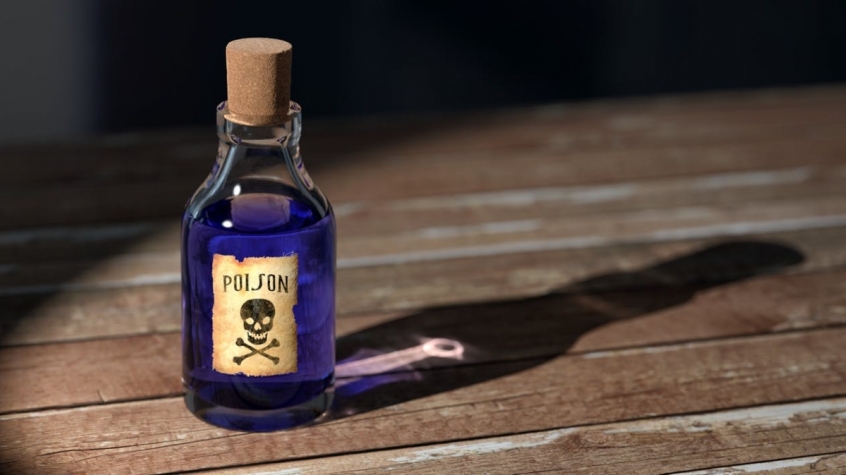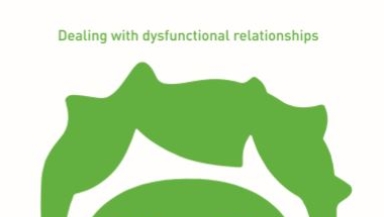
Good, honest people are the most vulnerable when it comes to 'toxic types' and those who seek to suck others dry, and the decent sorts need to limit the extent to which they seek to solve troubled people's problems.
That is the controversial but carefully logical argument put forward by the top psychiatrist and strong Christian believer Dr Tim Cantopher, in his new book Toxic People, published by Sheldon Press.
The book outlines how certain people – 'gameplayers, bullies, users and abusers' and, crucially, those who love to cross boundaries – are so stressful that they can actually make us ill.
Cantopher, whose advice is to 'shrink your address book a little', is keen to stress that this is not a medical book, given that he has retired. But as this fellow of the Royal College of Psychiatrists tells Christian Today: 'I look back at my career with leisure and what I realise is it is mostly people who make people ill.' And 'those people who are most vulnerable are the good honest carers of world'.
Cantopher, who believes that Jesus 'is the Saviour' but personally rejects organised religion, says: 'All of us aspire to love our neighbour but if you do so uncritically you are going to be vulnerable. The number one point is, it is possible to be a good and giving person, but also to be strategic: you can offer most to fellow man by remaining well, by not surrounding yourself by toxic takers of world.'
Over his career, which saw him train as a psychiatrist at St James' Hospital, Portsmouth and St George's Hospital Medical School, Cantopher says: 'I saw this all time – good people surrounded by folks who basically paralysed them.'
He continues: 'You could be excused for thinking people are nasty – well they are not actually; most people are quite nice. But there are a few people who aren't. I'm not condemning them – often this is down to their past, childhoods – but they end up there to use and abuse you, especially if you are simply an uncritical giver without any kind of boundaries.'
Indeed, 'boundaries are crucial' he says, along with the ability to say 'No': 'Allow people occasionally to be unhappy with you' and, liberatingly, 'it's the ability just to be you.'
Good people need to protect themselves and preserve their energy in order to help others properly, the doctor points out. 'Life is a marathon not a sprint. If you run first mile of a marathon in four minutes, you're not going to win. And if you try to give everything to everybody all of the time, there are a few people who will suck you dry.'
Should, then, there be a limit to how much we forgive such toxic people?
'Try and try again – but with boundaries, making it very clear what your boundaries are. You can't fix a person completely – what you can do is openly, kindly, strategically, in a boundaries fashion look to help them, but don't let yourself be caught in the trap of thinking you can fix another person or their lives – you can't.'
Then comes another controversial message: 'The most difficult example of this is family. Now, the Bible is very clear about this: honour your father and mother. But what if your father or your mother have used and abused you all of your lives. No. Respect, yes, but not dominated and destroyed by them. It is very sad but unfortunately there are many examples of parents who mess up their kids.'
More controversially still – 'and a pinch of salt is needed here because nobody is perfect' – Cantopher suggests that 'behaviour is at least as important as genetics'. In other words,'To me, a mother is someone who is motherly and a friend s someone who is friendly.'
Overall, he says, 'It is a very difficult balance, this, and I recognise this: it is particularly difficult for us Christians: we want to be good Christians – we want to give but that doesn't allow others to destroy you.'
Which brings us to Cantopher's own relationship with faith. 'I have a rather complicated Christian history,' he explains. 'I went to boarding school for 10 years in a Catholic monastery and at the end of that time I had developed a lot of doubts; I spent many years searching for my faith.

'The result is what I think is a strong faith, an absolute belief in God and Jesus as the saviour, but I don't subscribe to any type of organised religion. I don't want to make any further comment on that but just to say it hasn't worked for me – but God has.'
Finally, we come to Donald Trump. In the book's acknowledgements, Cantopher thanks the US President 'for being such a good model for all of the personalities' described in the chapter on toxic people'.
'My own view is that Donald Trump and his views are toxic, and I think he is the type of character from what I know of it which I would ask people to try to steer clear of in their lives, because your life is enriched by finding the healers, finding those people who by being in their presence you are healed and enhanced by them.'
He adds: 'I am not saying that all politicians are toxic, but toxicity is over-represented in the higher echelons in politics. Would you or I feel we were important enough to represent 60 million or 150 million people? I would suggest not. I am not saying all politicians are sociopaths, but these traits are over-represented. Unless we demand that only people we select by random ballot go into politics: otherwise people are going to select themselves.'
As for Trump, Cantopher reflects on his reference in the acknowledgements. 'It's a joke,' he explains, 'but like many jokes, I kind of mean it.'
'Toxic People: Dealing with dysfunctional relationships' by Dr Tim Cantopher is published by Sheldon Press.













